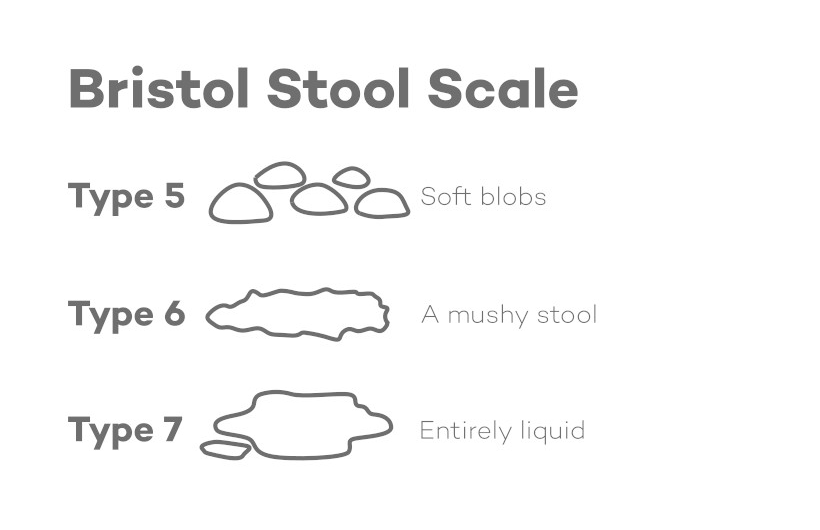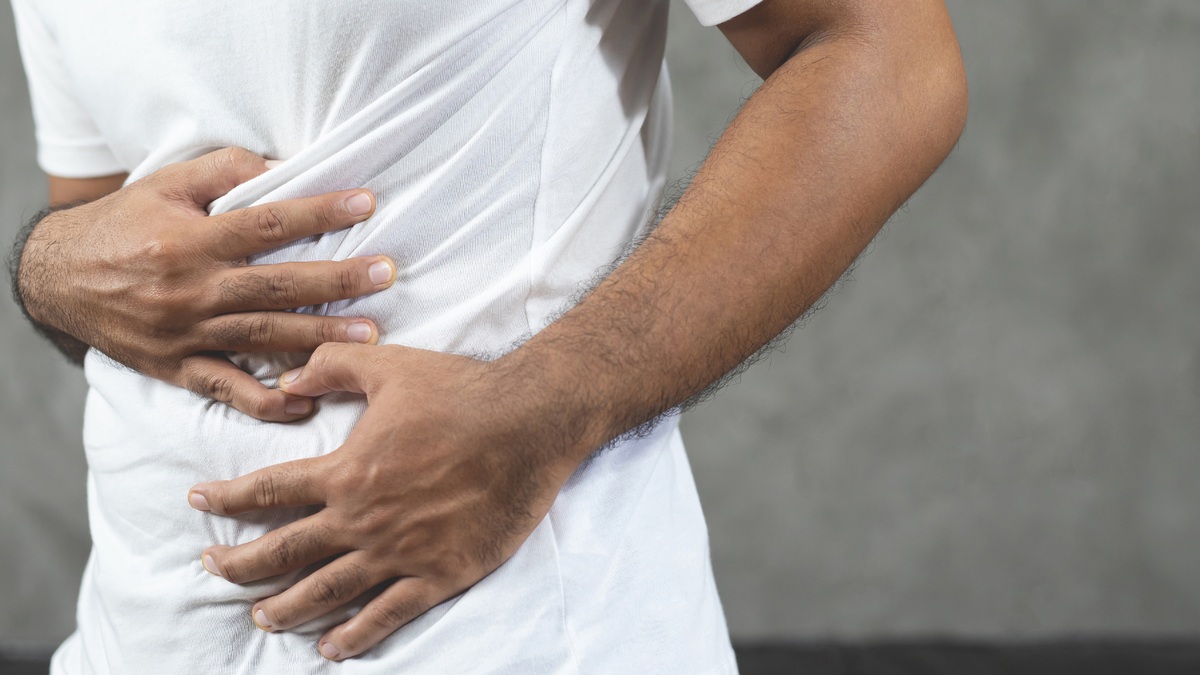On the Bristol stool scale, diarrhoea corresponds to stools of types 5 to 7.

Type 5: Stools that appear as soft blobs are considered normal by some specialists, while others say they are indicative of diarrhoea. Therefore, they might be viewed as falling somewhere between normal stools and diarrhoea.
Types 6 and 7: These certainly indicate diarrhoea. Type 6 stools have the consistency of watery porridge, while type 7 stools are completely liquid.
What causes diarrhoea?
Diarrhoea can be caused by a number of things, but the important question is whether it is short-term issue or a chronic problem.
Acute, i.e. short-term diarrhoea
Short-term diarrhoea is something we all have probably experienced. It usually passes within a few days.
Acute diarrhoea can be bacterial or viral in nature or caused by a parasitic infection (so-called traveller’s diarrhoea) or something you’ve eaten.
Liquid stools after eating may indicate food poisoning, lactose intolerance, infection, excessive magnesium intake, or simply excessive coffee drinking. Additionally, liquid stools can be caused by spicy or fatty foods.
This kind of diarrhoea is not much of a problem for the body because it passes quickly. Just make sure to drink enough water to replace the lost fluids.
Chronic diarrhoea – a long-term problem
Severe or frequent diarrhoea lasting for weeks or more at a time is a sign of a more serious health problem and definitely needs medical attention.
Such diarrhoea usually results from a bowel disease, food intolerance, or another disorder, such as coeliac disease or Crohn’s disease.
What kind of problems can chronic diarrhoea lead to?
Diarrhoea mainly results in dehydration, as it causes the body to lose a lot of water and salts in a short period of time.
If the lost water and salts are not replenished quickly, the body will start to ‘dehydrate’ – a condition where the body lacks the necessary amount of water and fluids to carry out its normal functions. This can eventually lead to seizures, low blood pressure, kidney failure, and even coma.
The other thing is that food will pass through your digestive system too quickly. Your body will be starved of nutrients because they are not given enough time to be absorbed into the bloodstream.
Note: If you have chronic diarrhoea, you should see your family physician as soon as possible!
How can you relieve diarrhoea?
In the case of chronic or very severe diarrhoea, you should first identify the causes and consult a doctor. Nonetheless, some changes to your diet might also help.
- The most important thing is to replenish the body’s fluid reserves. This simply means drinking more water or beverages containing electrolytes, such as sports drinks or coconut water.
- Consume more gel-like water-soluble fibre. This will soothe your digestive system and help prevent irritation. Oat flakes, blueberries, flaxseed, and psyllium are some good sources.
- Avoid laxative fruits and berries such as apples, plums, strawberries, currants, and water-insoluble wheat and rye bran, which can irritate the gut (but are good for relieving constipation).
- Our Calm Your Rumbly Tummy red fibre mix can also help make the digestion process smoother and reduce inflammation.
- If your diarrhoea stems from food intolerances (make sure to do a food intolerance test first!), you should avoid the foods in question or consume them in smaller quantities. The most common culprits behind food intolerances are gluten, lactose, and casein.
